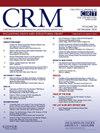压力测试对慢性冠心病患者PCI的指导作用。
IF 1.6
Q3 CARDIAC & CARDIOVASCULAR SYSTEMS
引用次数: 0
摘要
背景:越来越多的指南和国际适当使用标准认可用无创压力测试来评估疑似慢性冠状动脉疾病(CCD)患者。我们试图回顾无创压力测试在现实世界中的使用情况,并研究PCI术前使用无创压力测试是否与CCD患者的预后有关:方法:纳入2006年至2018年期间因CCD接受PCI治疗的多中心登记的连续患者。根据 PCI 前是否进行压力测试对临床特征和预后进行分层(压力组与无压力组)。主要结果是3年全因死亡率:结果:在纳入的 8251 例患者中,4970 例(60.2%)接受了 PCI 前压力测试,且这一比例随着时间的推移而增加(p-for-trend):在CCD患者中,越来越多的患者在无创压力测试的指导下进行PCI,这与生存率的提高有关。有必要开展进一步的研究,以探讨患者特征的差异、患者选择的优化或靶血管选择的改进是否会导致这一结果。本文章由计算机程序翻译,如有差异,请以英文原文为准。
The impact of stress testing to guide PCI in patients with chronic coronary disease
Background
Guidelines and international appropriate use criteria increasingly endorse non-invasive stress testing to evaluate patients with suspected chronic coronary disease (CCD). We sought to review the real-world utilisation of non-invasive stress testing and investigate whether their use prior to PCI associates with outcomes in patients with CCD.
Methods
Consecutive patients from a multicentre registry who underwent PCI for CCD between 2006 and 2018 were included. Clinical characteristics and outcomes were stratified according to whether stress testing was performed prior to PCI (stress vs no-stress groups). The primary outcome was 3-year all-cause mortality.
Results
Among the 8251 patients included, 4970 (60.2 %) underwent pre-PCI stress testing and this proportion increased over time (p-for-trend<0.001). The stress group had a lower prevalence of prior revascularization, myocardial infarction, or heart failure, and a lower incidence of triple vessel disease, in stent re-stenosis, and ACC/AHA class B2/C lesions (all p < 0.001). When comparing post-procedural outcomes, the stress group had lower rates of arrhythmia (1.5 % vs 2.6 %, p = 0.001), new heart failure (0.2 % vs 0.8 %, p = 0.001), renal impairment, and a shorter length of stay (1.6 vs 2.1 days, p < 0.001). Mortality at 3-years was lower in those undergoing PCI following stress testing (5.8 % vs 8.8 %, p < 0.001). After adjusting for key clinical variables, stress guided revascularization was associated with a significantly lower risk of 3-year mortality (adjusted Hazard Ratio 0.77, 95 % CI 0.64–0.92).
Conclusions
In patients with CCD, PCI guided by non-invasive stress testing is increasingly utilized and associated with improved survival. Further studies are necessary to investigate whether this results from differences in patient characteristics, optimized patient selection, or refined choice of target vessel.
求助全文
通过发布文献求助,成功后即可免费获取论文全文。
去求助
来源期刊

Cardiovascular Revascularization Medicine
CARDIAC & CARDIOVASCULAR SYSTEMS-
CiteScore
3.30
自引率
5.90%
发文量
687
审稿时长
36 days
期刊介绍:
Cardiovascular Revascularization Medicine (CRM) is an international and multidisciplinary journal that publishes original laboratory and clinical investigations related to revascularization therapies in cardiovascular medicine. Cardiovascular Revascularization Medicine publishes articles related to preclinical work and molecular interventions, including angiogenesis, cell therapy, pharmacological interventions, restenosis management, and prevention, including experiments conducted in human subjects, in laboratory animals, and in vitro. Specific areas of interest include percutaneous angioplasty in coronary and peripheral arteries, intervention in structural heart disease, cardiovascular surgery, etc.
 求助内容:
求助内容: 应助结果提醒方式:
应助结果提醒方式:


